T32 trainees will conduct research in the lab of one of the following mentors/preceptors. Mentors’ research falls into one or more of the 4 main research foci of the training program.
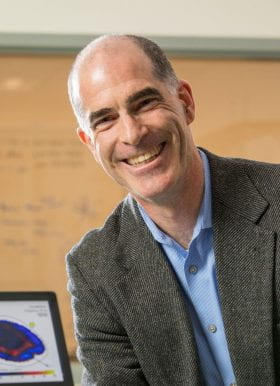
Philip Bayly, PhD
The Lilyan & E. Lisle Hughes Professor and Chair of Mechanical Engineering
Department of Mechanical Engineering and Materials Science
- Email: pvb@wustl.edu
The Bayly lab studies dynamic, mechanical phenomena in biomedical systems, including cortical folding and tissue mechanics in traumatic brain injury.
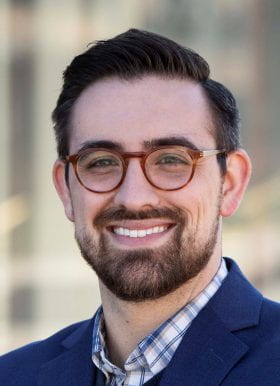
Matthew Bersi, PhD
Assistant Professor, Mechanical Engineering & Materials Science
- Email: mbersi@wustl.edu
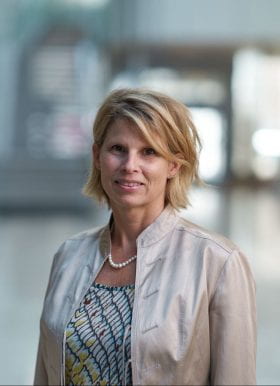
Valeria Cavalli, PhD
Associate Professor
Department of Neuroscience
- Email: cavalli@wustl.edu
The Cavalli lab studies the molecular mechanisms of PNS injury signaling and axon regrowth, and how this can inform CNS regeneration.
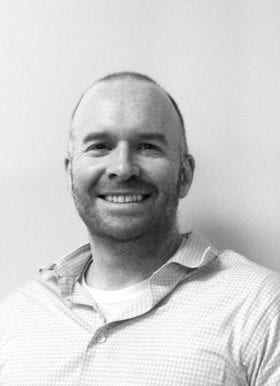
Grant Challen, PhD
Associate Professor, Division of Oncology, Department of Medicine
- Email: grantchallen@wustl.edu
The Challen lab focuses on how epigenetic marks regulate HSC self-renewal and differentiation, and how these are altered in lymphoma and leukemia.
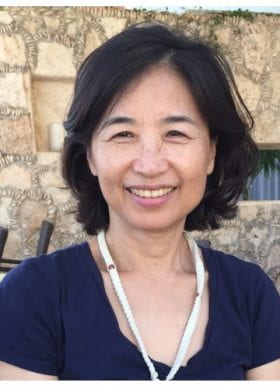
Kyunghee Choi, PhD
Professor, Department of Pathology & Immunology
- Email: kchoi@wustl.edu
The Choi lab studies hematopoietic and endothelial development and the interplay between angiogenesis and immunity in cancer

Matthew Ciorba, MD
Professor of Medicine, Director for Inflammatory Bowel Diseases Center
- Email: mciorba@wustl.edu
The Ciorba lab studies studies the roles of amino acid metabolism and microbial interactions in neoplastic and chronic inflammatory conditions of the GI tract.
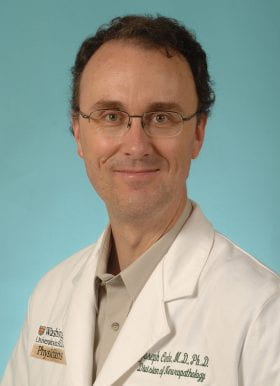
Joseph Corbo, MD, PhD
Professor
Department of Pathology and Immunology
- Email: jcorbo@wustl.edu
The Corbo lab studies the transcriptional regulatory networks that underlie the development, evolution, and diseases of photoreceptors.
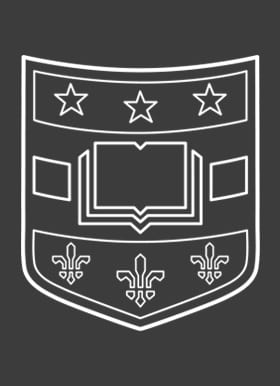
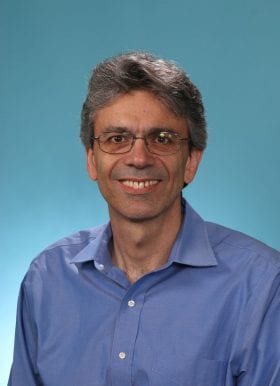
Aaron DiAntonio, MD, PhD
Alan A. and Edith L. Wolff Professor, Department of Developmental Biology
- Email: diantonio@wustl.edu
The DiAntonio lab studies the molecular mechanism that control axon generation, degeneration, and regeneration during development and disease.
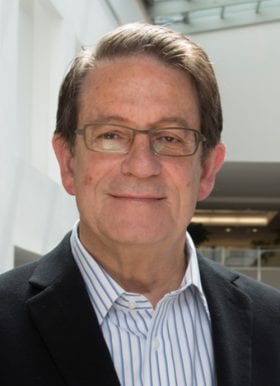
John DiPersio, MD, PhD
Virginia E. & Sam J. Golman Professor of Medicine
Department of Medicine; Chief, Division of Oncology
- Email: jdipersi@wustl.edu
The DiPersio lab studies the mechanisms underlying leukemia, hematopoietic stem cell mobilization, and graft vs. host disease.

Jianjun Guan, PhD
Professor, Mechanical Engineering and Materials Science
- Email: jguan22@wustl.edu
Research in the Guan Lab is focused on creating biomaterials for tissue regeneration and drug delivery.

Farshid Guilak, PhD
Co-Director, Center of Regenerative Medicine; Mildred B. Simon Professor of Orthopedic Surgery; Director of Research, Shriner’s Hospitals – St. Louis
- Email: guilak@wustl.edu
The Guilak Lab is pursuing a multidisciplinary approach to investigate the etiology and pathogenesis of osteoarthritis, as a basis for the development of new pharmacologic and stem cell therapies.
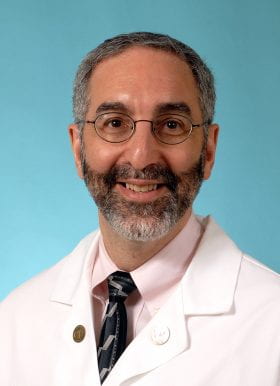
David Gutmann, MD, PhD
Donald O. Schnuck Family Professor & Vice Chair for Research Affairs
Department of Neurology
- Email: gutmannd@wustl.edu
The Gutmann lab studies the cellular and molecular basis underlying nervous system dysfunction in neurofibromatosis using mouse and iPSC models.

Nathaniel Huebsch, PhD
Assistant Professor, Biomedical Engineering
- Email: nhuebsch@wustl.edu
Professor Huebsch’s research focus is in basic and translational stem cell mechanobiology, with specific focus on hydrogels to control cell-mediated tissue repair, and 3-D models heart-on-a-chip models derived from human induced pluripotent stem cells.
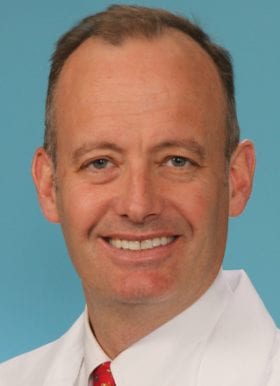
Benjamin Humphreys, MD, PhD
Joseph Friedman Professor of Renal Diseases in Medicine, Division of Nephrology, Department of Medicine
- Email: humphreysbd@wustl.edu
The Humphreys Lab develops new and innovative treatments to help patients with kidney disease. They are using human stem cells to generate kidney organoids in a dish, with a goal of one day transplanting them into patients with kidney failure. They also study the kidney’s ability to regenerate itself so that they can harness this ability for therapeutic uses.

Sanjay Jain, MD, PhD
Associate Professor, Division of Nephrology, Department of Medicine
- Email: sanjayjain@wustl.edu
The Jain lab studies the molecular and cellular mechanisms that regulate maintenance, differentiation and function of kidney progenitors in normal development and disease states.
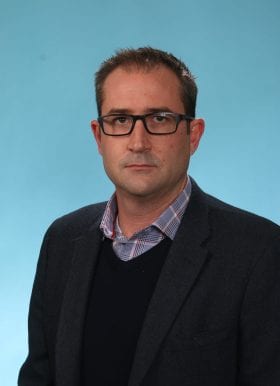
Aaron Johnson, PhD
Assistant Professor, Developmental Biology
- Email: anjohnson@wustl.edu
The Johnson lab studies the development and regeneration of muscle in fly and human.
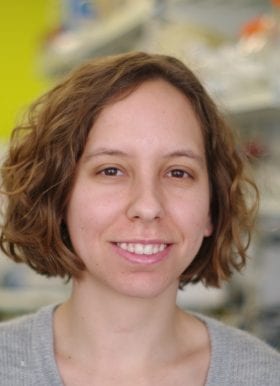
Celeste Karch, PhD
Associate Professor, Psychiatry
- Email: karchc@wustl.edu
The Karch lab studies the molecular mechanisms underlying neurodegenerative tauopathies.
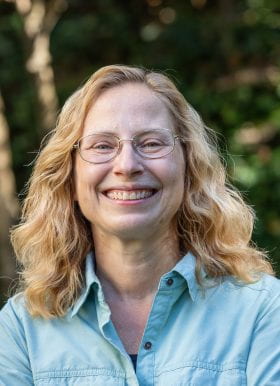
Kristen Kroll, PhD
Professor, Developmental Biology
- Email: kkroll@wustl.edu
The Kroll lab studies the epigenetic and transcriptional regulators that control fate decisions from embryonic stem cells into the neural lineage.
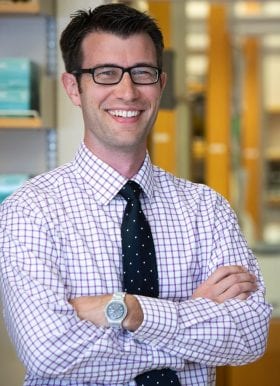
Spencer Lake, PhD
Associate Professor, Mechanical Engineering and Materials Science
- Email: lake.s@wustl.edu
The Lake lab studies the biomechanics and structure-function relationships of soft tissues and how these change in injury and disease.
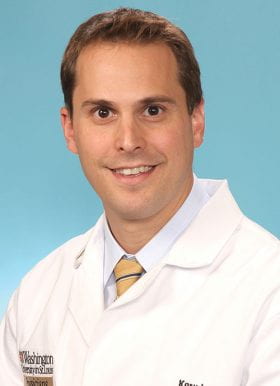
Kory Lavine, MD, PhD
Associate Professor, Division of Cardiology, Department of Medicine
- Email: klavine@wustl.edu
The Lavine lab studies heart development and the role of macrophages in cardiac recovery and reprogramming.
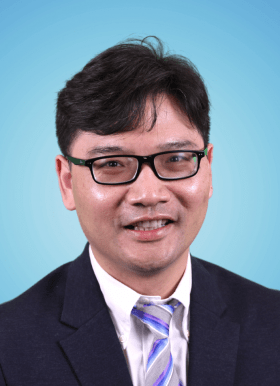
Xiaowei Li, PhD
Assistant Professor, Department of Surgery, Division of Plastic Surgery
- Email: xiaoweili@wustl.edu
The Li lab is developing biomaterials platforms for regenerative medicine, with specific interest in applications of biomaterials for angiogenesis and vascularization, stem cell engineering, and central nervous system and soft tissue regeneration.
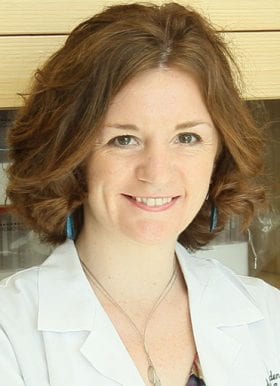
Audrey McAlinden, PhD
Associate Professor, Orthopedic Surgery
- Email: mcalindena@wustl.edu
The McAlinden lab studies the molecular mechanisms regulating cartilage development and maintenance.
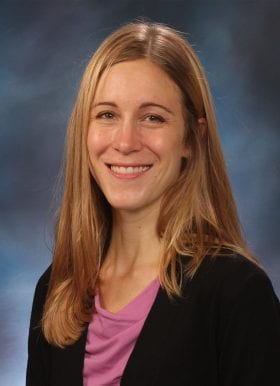
Gretchen Meyer, PhD
Assistant Professor, Physical Therapy
- Email: meyerg@wustl.edu
The Meyer lab studies the effects of muscle injury at the molecular and tissue level and the role of adipose tissue in muscle repair.
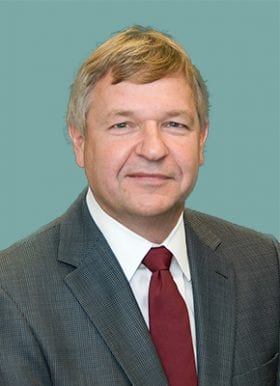
Jeffrey Milbrandt, MD, PhD
James S. McDonnell Professor and Head of Genetics
- Email: jmilbrandt@wustl.edu
The Milbrandt lab studies mechanisms that influence axonal degeneration and regeneration.
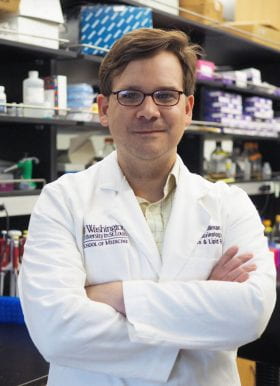
Jeffrey Millman, PhD
Associate Professor; Division of Endocrinology, Metabolism, and Lipid Research; Department of Medicine
- Email: jmillman@wustl.edu
The Millman lab investigates novel stem cell technology and biomedical engineering approaches for the treatment of diabetes.
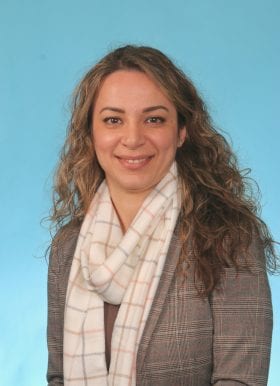
Mayssa Mokalled, PhD
Assistant Professor, Developmental Biology
- Email: mmokalled@wustl.edu
The Mokalled lab investigates mechanisms of spinal cord regeneration after injury or disease using zebrafish as a primary model.
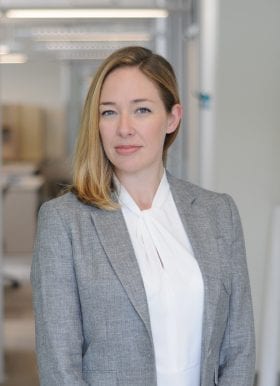
Samantha Morris, PhD
Associate Professor of Genetics and of Developmental Biology
- Email: s.morris@wustl.edu
The Morris lab studies the gene regulatory networks that define cell fate. This information is applied to engineer cell identity, and to better understand cell fate decisions in development and disease.

Regis O’Keefe, MD, PhD
Fred C. Reynolds Professor and Head of Orthopedic Surgery
- Email: okeefer@wustl.edu
The O’Keefe lab studies skeletal development and repair, cancer, and inflammatory diseases of bone.
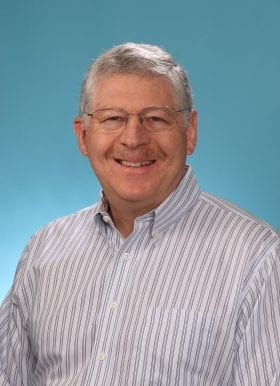
David Ornitz, MD, PhD
Alumni Endowed Professor of Developmental Biology
- Email: dornitz@wustl.edu
The Ornitz lab investigates the functions of Fibroblast Growth Factors (FGFs), their interactions with other signaling pathways, and their role in tissue regeneration, response to injury, and cancer.
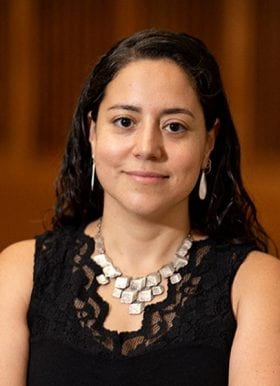
B. Duygu Ozpolat, PhD
Assistant Professor, Department of Biology
- Email: bdozpolat@wustl.edu
If humans lose their reproductive cells (i.e eggs and sperm) they become infertile, in contrast, some animals regenerate their reproductive cells and reproductive organs. The Ozpolat lab’s goal is to uncover the mechanisms of reproductive cell and tissue regeneration by identifying the cell types and genes involved in this process, which will inform regenerative medicine approaches.

Hua Pan, PhD
Associate Professor, Department of Medicine
- Email: hpan@wustl.edu
The Pan Lab is studying the basic conception, development, and clinical application of novel nanostructures that serve as safe and effective delivery vehicles for therapeutic nucleotides to mitigate diseases including arthritis and cancer treatment induced vital organ injury.
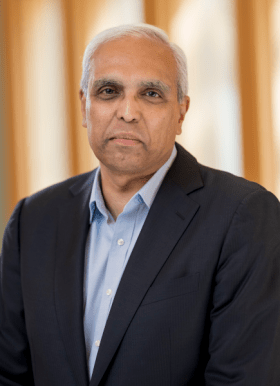
Rohit Pappu, PhD
Gene K. Beare Distinguished Professor of Biomedical Engineering
- Email: pappu@wustl.edu
The Pappu Lab studies the molecular basis of neurodegeneration, phase transitions that lead to protein and RNA condensates driven by multivalent molecules, the biophysics of intrinsically disordered proteins, and design of responsive, protein-based biomaterials. This includes multiscale computer simulations, adaptations and developments of polymer physics theories, in vitro experiments, and collaborations that enable molecular and cellular level investigations.
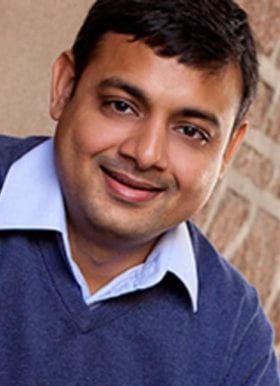
Amit Pathak, PhD
Associate Professor, Mechanical Engineering and Materials Science
- Email: pathaka@wustl.edu
The Pathak lab uses a multidisciplinary approach combining methods and concepts from biomaterials, microfluidics, molecular and cell biology, microscopy, applied mechanics, and computational modeling to investigate the ability of living cells to move through complex tissue environments.
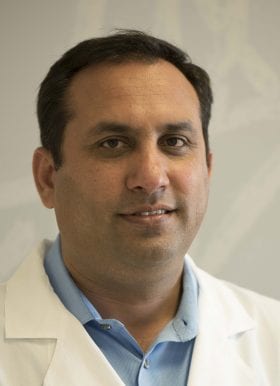
M. Farooq Rai, PhD
Assistant Professor, Department of Orthopedic Surgery
- Email: rai.m@wustl.edu
Dr. Rai is interested in understanding the early molecular mechanisms that orchestrate changes in knee joint after injury and lead to the development of post-traumatic osteoarthritis.

Michael Rauchman, MDCM
Professor, Division of Nephrology, Department of Medicine
- Email: mrauchma@wustl.edu
Dr. Rauchman’s research focuses on understanding the molecular and genetic basis of mammalian kidney development, how disruption of specific pathways leads to abnormal development of this organ, the consequences of injury to adult kidney and the relationship between genetic mutations in humans and the development of future cardiovascular and renal disorders in humans.
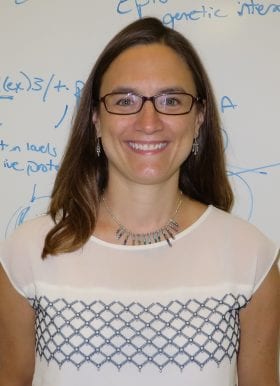
Stacey Rentschler, MD, PhD
Associate Professor, Division of Cardiology, Department of Medicine
- Email: stacey.rentschler@wustl.edu
The Rentschler lab studies the molecular mechanisms of conduction cell specification and conductive disorders in heart biology.
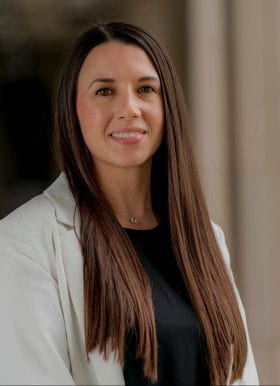
Alexandra Rutz, PhD
Assistant Professor, Biomedical Engineering
- Email: rutzalexandral@wustl.edu
The Rutz lab is focused on bridging living systems and technologies through the design of materials and development of advanced manufacturing methods.
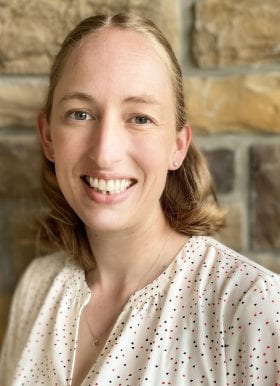
Erica L Scheller, DDS, PhD
Executive Director, Center of Regenerative Medicine; Associate Professor of Medicine; Associate Professor of Cell Biology and Physiology
- Email: scheller@wustl.edu
The Scheller laboratory synthesizes concepts from cell biology, physiology, and bioengineering to study the relationships between the nervous system and the skeleton. They have a directed interest in understanding how neural signals contribute to skeletal homeostasis, and how perturbations to this system contribute to bone loss, impaired healing, and altered regeneration. They also seek to understand how skeletal cells and proteins coordinate and regulate nerve regeneration in and on the bone.
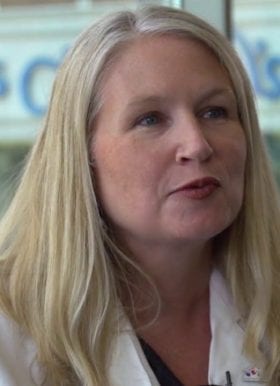
Laura Schuettpelz, MD, PhD
Associate Professor, Pediatrics
- Email: schuettpelz_l@wustl.edu
The Schuettpelz lab studies how inflammatory signals regulate hematopoietic stem cells.
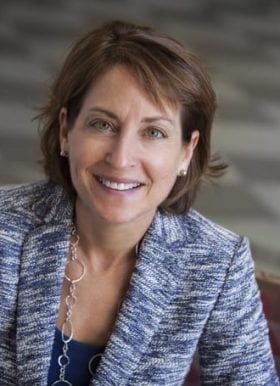
Lori Setton, PhD
Lucy & Stanley Lopata Distinguished Professor and Chair of Biomedical Engineering
- Email: setton@wustl.edu
The Setton Lab focuses on engineering and design of novel materials and drug depots to support regeneration of tissues of the musculoskeletal system.
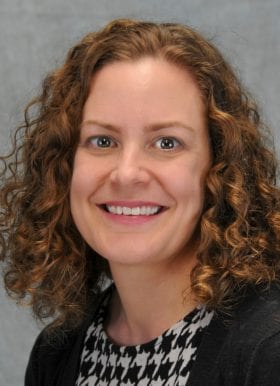
Lavinia Sheets, PhD
Assistant Professor, Otolaryngology
- Email: sheetsl@wustl.edu
The Sheets lab uses zebrafish as a model system to understand how senory hair cells of the auditory system develop, degenerate, and regenerate. A main focus of the lab is to identify biological pathways that promote nerve regeneration and hair-cell reinnervation with the goal of providing information toward clinical regenerative therapies.

Jie Shen, PhD
Assistant Professor, Orthopedic Surgery
- Email: shen.j@wustl.edu
The Shen laboratory recently works on epigenetics of degenerative and regenerative processes in the muscuoskeletal system, e.g. osteoarthritis and bony fracture. They employ unbiased approaches to study the genomic and epigenomic alterations in skeletal diseases.
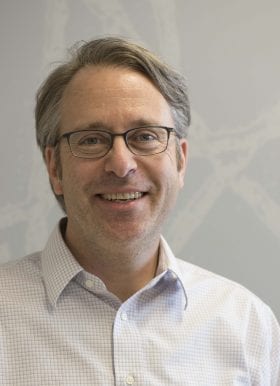
Matthew Silva, PhD
Julia and Walter R. Peterson Orthopaedic Research Professor, Orthopedic Surgery
- Email: silvam@wustl.edu
The Silva lab studies the mechanical and molecular factors that regulate loading-induced bone formation and bone injury response and repair.
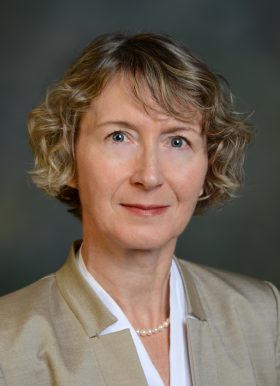
Lilianna Solnica-Krezel, PhD
Co-Director, Center of Regenerative Medicine; Alan A. and Edith L. Wolff Distinguished Professor and Head of Developmental Biology
- Email: solnical@wustl.edu
The Solnica-Krezel lab studies the cellular and molecular genetic mechanisms underlying vertebrate gastrulation in zebrafish and human embryonic stem cells.
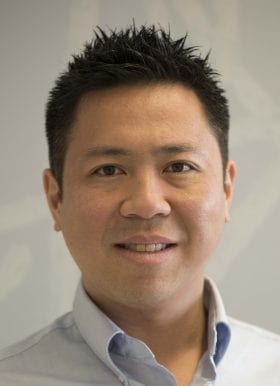
Simon Tang, PhD
Associate Professor, Orthopedic Surgery
- Email: simon.tang@wustl.edu
The Tang lab integrates engineering and biology approaches to investigate mechanisms of degeneration relating to bone fragility and intervertebral disc degeneration, with an emphasis in the role of advanced glycation endproducts (AGEs) and RAGE signaling on the cells and tissues of the skeletal system.
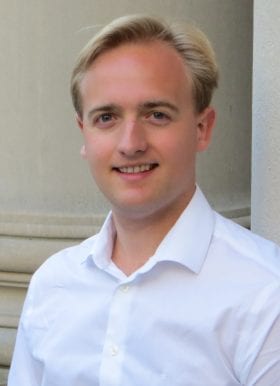
Thorold Theunissen, PhD
Assistant Professor, Developmental Biology; co-Director Human Cells, Tissues, and Organoids Core
- Email: t.theunissen@wustl.edu
The Theunissen lab investigates the molecular mechanisms regulating distinct pluripotent stem cell states and their applications in regenerative medicine.
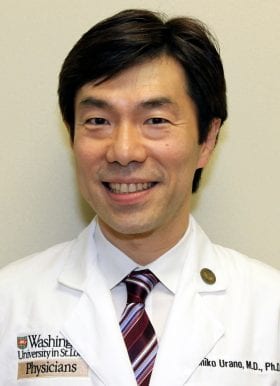
Fumihiko Urano, MD, PhD
Samuel E. Schechter Professor, Division of Endocrinology, Metabolism and Lipid Research, Department of Medicine
- Email: urano@wustl.edu
The Urano lab studies the molecular mechanisms of Wolfram Syndrome and investigates potential therapies.
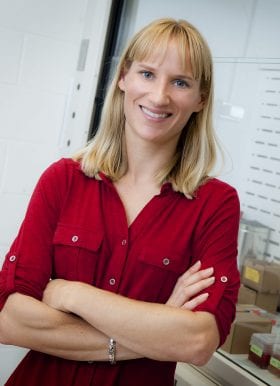
Jessica Wagenseil, DSc
Professor, Mechanical Engineering and Materials Science
- Email: jessica.wagenseil@wustl.edu
The Wagenseil lab studies how mechanical stimuli regulate large artery formation and remodeling in development and disease.
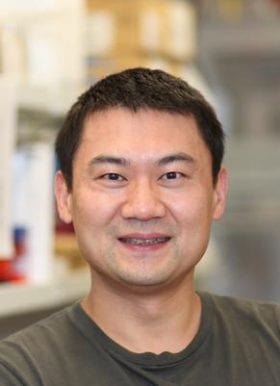
Ting Wang, PhD
Sanford C. and Karen P. Loewentheil Distinguished Professor, Genetics
- Email: twang@genetics.wustl.edu
The Wang lab focuses on understanding genetic and epigenetic factors that determine cell fate, including cell fate decision in normal development and differentiation, abnormal cell fate choice in cancer, and how specific cell types evolve.